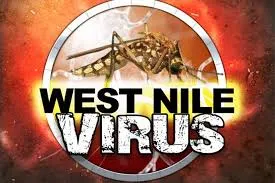The Wayne County Health Department says routine mosquito testing has identified the first batch of mosquitoes positive for West Nile virus and St. Louis Encephalitis in Wayne County in 2024. The mosquitoes were collected on August 7th in the southern part of the county.
West Nile virus and St. Louis Encephalitis are transmitted through the bite of a mosquito that has picked up the virus by feeding on an infected bird. Common symptoms of both viruses include fever, nausea, headache and muscle aches.
Symptoms may last from a few days to a few weeks. However, four out of five people infected with West Nile virus will not show any symptoms. Severe infection may produce a rapid onset of severe headache, high fever, muscle aches, stiffness in the back of the neck, problems with muscle coordination disorientation, convulsions, and coma.
The best way to prevent mosquito-borne diseases and illnesses is to reduce the number of mosquitoes around your home and to take personal precautions to avoid mosquito bites. Precautions include practicing the three “R’s” – reduce,repel and report.
REDUCE exposure – avoid being outdoors when mosquitoes are most active, especially between dusk and dawn. Make sure doors and windows have tight-fitting screens. Repair or replace screens that have tears or other openings. Try to keep doors and windows shut, especially at night. Eliminate all sources of standing water where mosquitoes can breed, including flowerpots, wading pools, old tires, and any other receptacles. Change water in bird baths weekly.
REPEL – when outdoors, wear shoes and socks, long pants and a long-sleeved shirt, and apply insect repellent that contains DEET, picaridin, oil of lemon eucalyptus or IR 3535, according to label instructions. Consult a physician before using repellents on infants.
REPORT – In communities where there are organized mosquito control programs, contact your municipal government to
report areas of stagnant water in roadside ditches, flooded yards, and similar locations that may produce mosquitoes.
Additional information can be found on the Illinois Department of Public Health’s Web site at
www.idph.state.il.us/envhealth/wnv.htm and https://dph.illinois.gov/topics-services/diseases-and-conditions/diseasesa-z-list/arboviral-encephalitis.html.

Comments